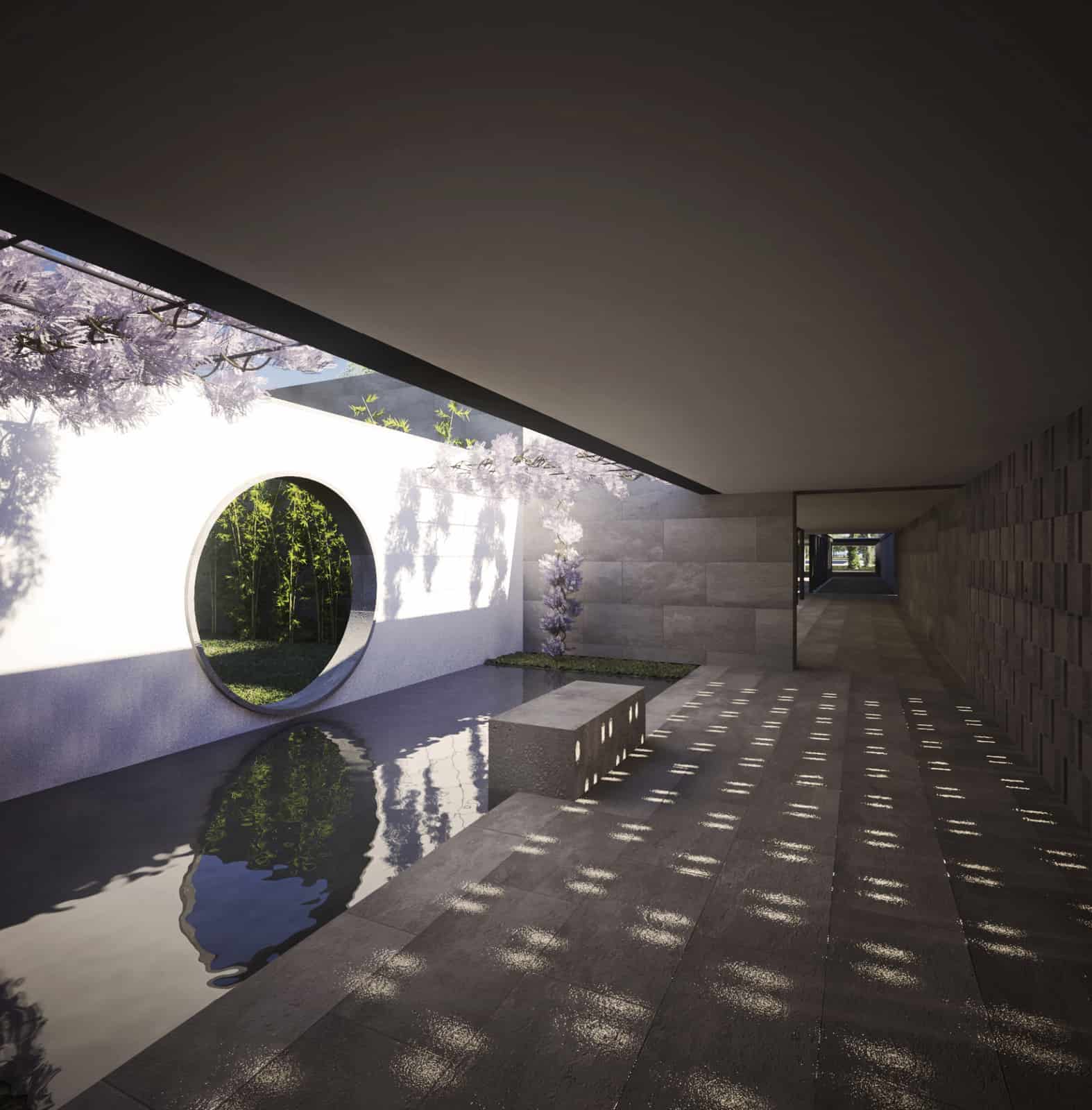Many people feel an attachment to their childhood homes, but Chinese entrepreneur and philanthropist Ma Dadong took that nostalgia to new heights by rescuing his entire native village—and transforming it into the new Amanyangyun resort.
Ma’s ambitious preservation project began in 2002, when he learned that an impending reservoir construction project in Jiangxi province was threatening his hometown, Fuzhou, and its surrounding camphor forest. Although he didn’t yet have a long-term plan, Ma sprang into action, uprooting and relocating 50 Ming and Qing Dynasty homes and 10,000 camphor trees to Shanghai, where he now lives. “I realized that giving ancient homes and sacred trees new life would also celebrate Chinese history and culture,” Ma says.

The three-year relocation process was no easy feat: Engineers had to construct new roads and bridges to transport dwellings and trees from the remote mountains. Expert craftsmen carefully dismantled the ancient buildings Ma had admired as a boy. “It was during the long journey that I gradually learned the cultural value of the project, its importance in preserving the vanishing past, and how meaningful it is from an eco-protection perspective,” Ma says.
In 2009, seven years after Ma launched his labor of love, Singapore-based Aman Resorts partnered with him to resurrect the buildings as part of a luxury resort. The 25-acre Amanyangyun, which opened in January about 40 minutes from downtown Shanghai, offers travelers modern amenities—including a spa and six dining venues—but China’s heritage is at its core. The 50 historic homes were combined to create 26 villas, with minor updates such as glass windows. Nan Shufang, a renovated villa named for the Forbidden City’s royal reading pavilion, anchors the property. It’s a communal space where guests can enjoy cultural activities, such as a calligraphy course or a tea and incense ceremony. The resort’s grounds are dotted with courtyards, lakes, and the replanted camphor trees, some 1,000 years old, which are believed to house ancient spirits. At the very least, they bring old China to the epicenter of the modern nation.
“We humans are nothing but fleeting travelers at a moment in time,” says Ma. “As guardians of the past, I realized the only way to protect and celebrate our history was by instilling a new life into these ancient homes and allowing the sacred trees that surround them to be animated with renewed spirit.”

